The Difficult Art of Taking a Walk
Peng Zuqiang, Basma Alsharif, Paul Maheke, Nazlı Dinçel, P. Staff
Accompanying Yu Ji’s exhibition Miss Shell, Delta, and Two Noughts, CCA Berlin presents The Difficult Art of Taking a Walk, a screening of five recently produced films and videos by Peng Zuqiang, Basma Alsharif, Paul Maheke, Nazlı Dinçel and P. Staff.
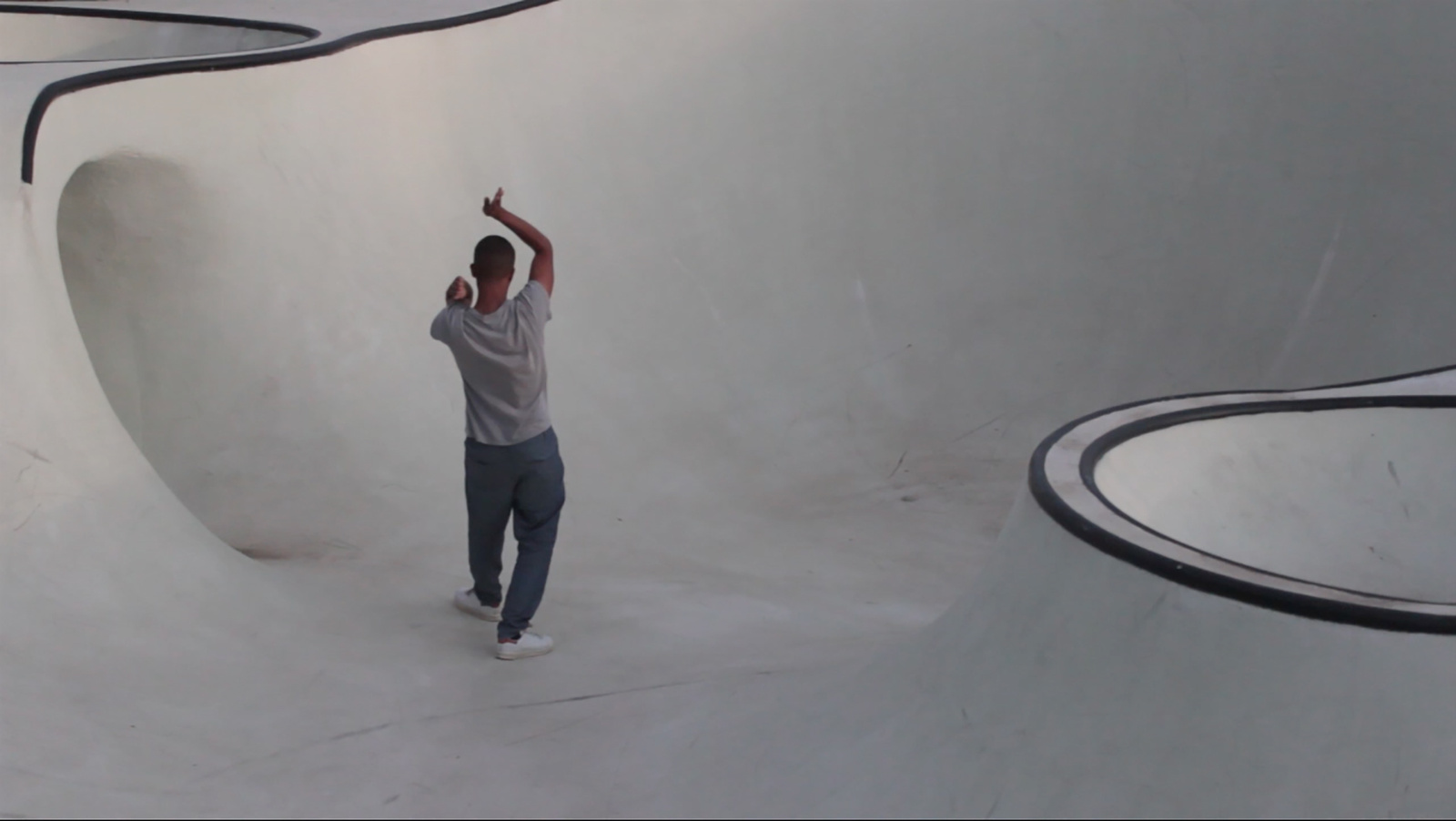
Paul Maheke, Tropicalité, l'Île et l'Exote, 2014, film still from single-channel video, 12’45’’. Courtesy the artist.
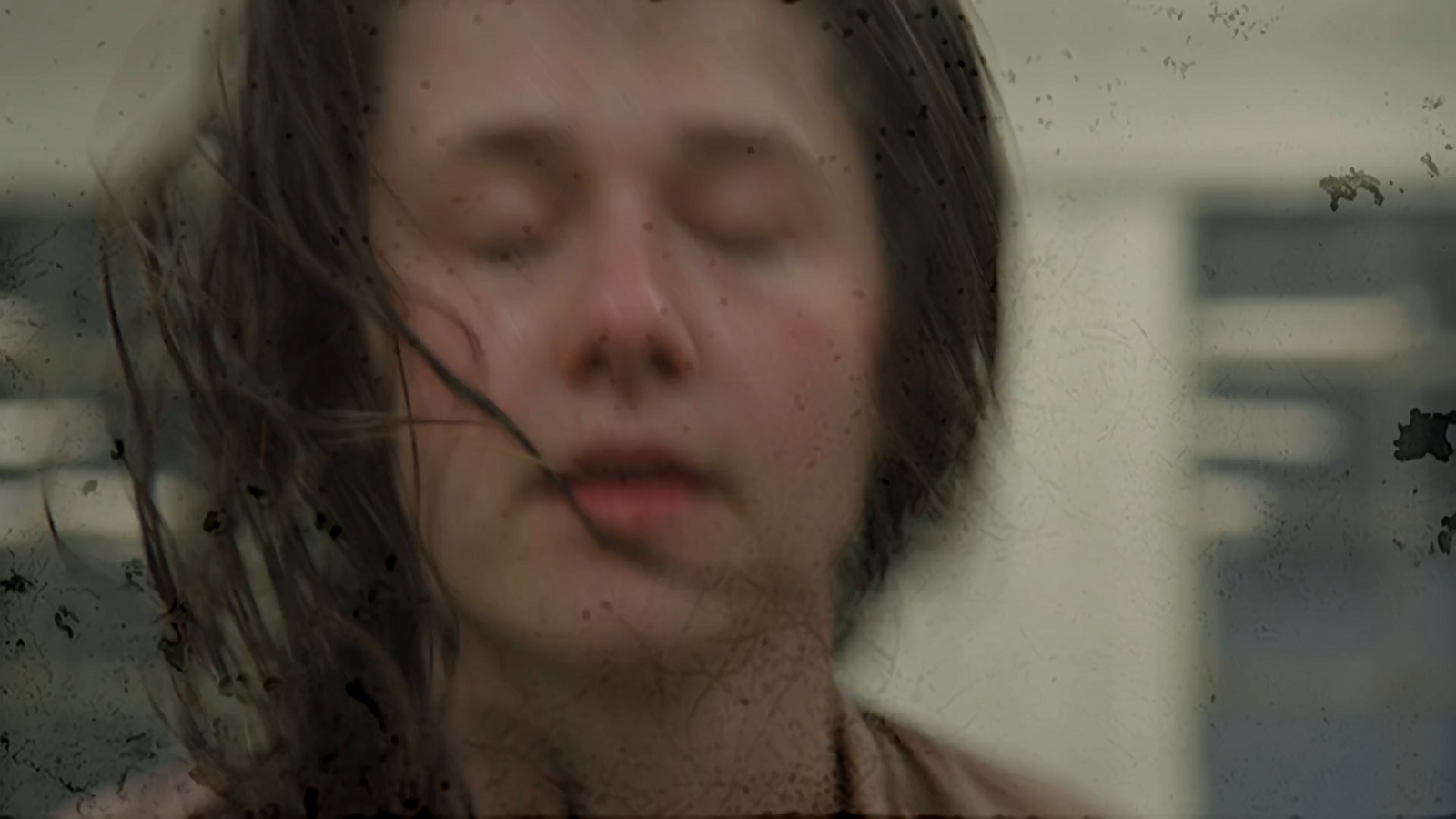
P. Staff, Bathing, 2018, film still from single-channel video, 16’27’’. Courtesy the artist.
Yu Ji’s sculptural work, on view at CCA Berlin, has increasingly relied on sourcing and recycling materials from the immediate surroundings the artist has been operating from, which result from her relocation to Europe and participation in international exhibitions and residencies. The work poses the question of how to remain faithful to the specificity of a site that animates her practice all the while adjusting to the foreignness of a landscape she finds herself wandering in and reflecting on at a given moment in time. The Difficult Art of Taking a Walk brings together a selection of recently produced artists’ films by Peng Zuqiang, Basma Alsharif, Paul Maheke, Nazlı Dinçel and P. Staff that further expand on acts of wandering in spaces both familiar and foreign through the cinematic form. Drawing from the early twentieth century practice of flânerie, an activity which, by way of aimless strolling, involved bearing witness to apparitions of modernity in European cities at the height of their capitalist transformation, these films displace focus onto the subject-wanderer themself—their sense of place and embodiment, experiential navigation of material and psychic spaces in altered or ‘queered’ states, and capacity to register the colonial-racial underpinnings of cities’ spatial organization. How do one’s feelings for, or knowledge of, the past disrupt their contact with the present? How can motion and gaze be carried autonomously from within spaces that can’t be claimed as one’s own? How to read the signs, partitions, and ruins of a city or landscape as text?
Peng Zuqiang, Sight Leak (2022), 12’15’’
“The moon, the sometimes dark street, trees, it's warm […] at last, a certain eroticism possible (that of the warm night).” When Roland Barthes visited China in 1973, he jotted down some notes that would become part of his Travels in China (Carnets du voyage en Chine), an underplot of desire in his imagination of the country. Barthes did not publish these writings during his lifetime, and his unsettling judgments about China are refracted in Peng Zuqiang's work as fragments of dialogues on class and looking, responding to the reflections on the same matters elicited alongside Barthes' sense of eroticism. The local tourist in the film travels through different spaces and gatherings, seemingly never looking at anyone, yet silently looking at someone, turning towards a certain collectivity in the know. A possible subversion of a homoerotic foreign gaze.
Basma Alsharif, Deep Sleep (2014), 12’45’’
Deep Sleep draws from historical avant-garde cinema to produce a poetic, sound-based meditation following brainwave-generating binaural beats. The dreamlike video is filmed among abandoned ruins in Malta, Athens, and Gaza, connecting the three locations in an attempt to convey the experience of being in Gaza from these monumental sites. Colorful flickering lights, sun, earth, stone, rock, sky, and water inundate the scenes, and the rhythmic sounds of waves, chimes, and footsteps remain. Restricted from visiting Gaza for a period, Basma Alsharif practiced self-hypnosis in an attempt to locate herself in several places at once and filmed this work while in a trance state. Appearing in the video as her own double, dressed in all-white, she walks through unidentifiable ruins, holding a recording device. The artist points to various details in a scene, her finger filling the frame, urging us to take a closer look. The meditative shots coax the viewer into the rhythmic flow of the film where time and temporalities, borders and distinguishable geographies collapse into one another.
Paul Maheke, Tropicalité, l'Île et l'Exote (2014), 12’45’’
Tropicalité, l'Île et l'Exote is a silent French/English subtitled video, which considers the notion of islands and bodies as colonized spaces and territories as well as possible sites of resistance. Featuring sweeping seascapes and glorious marine life, the footage was shot on the artificial island of Vassivière in France, and the tropical French overseas region of La Réunion in the Indian Ocean. The view later switches to the artist performing a spirited, seemingly improvised dance inside what appears to be an empty swimming pool.
Nazlı Dinçel, Between Relating and Use (2018), 9’17’’
Nazlı Dinçel’s hand-made work reflects on experiences of disruption. They record the body in context with arousal, immigration, dislocation and desire with the film object: its texture, color and the tractable emulsion of the 16mm material. Their use of text as image, language and sound imitates the failure of memory and their own displacement. Borrowing words from Laura Mark's “Transnational Object” and DW Winnicott's “Transitional Object”, Between Relating and Use is an attempt to ethically make work in a foreign land. Transitioning from assuming the position of an ethnographer, we turn and explore inwards—on how we use our lovers.
P. Staff, Bathing (2018), 16’27’’
Bathing explores themes of contamination, cleanliness, and debility through performance and dance. Between the performer’s movements, the video intersperses images of oil, spit, fluid landscapes, and U.S. border patrol, with flashes of a dog lost to a blissful state of chaos. The work combines references to modern dance (including dance made specifically for the camera) with Staff’s research into the classical figure of the bather, chemical effects, drunken revelry, and the spiritello figures that commonly adorn European fountains. The dancer’s continuous actions and gestures eventually lead to overexertion of the body. A fluid cross-contamination between substance, performer, and image occurs, bringing to mind the ways in which bodies absorb and release chemicals, hormones, and other agents—a means of survival for some with potentially lethal consequences for others.
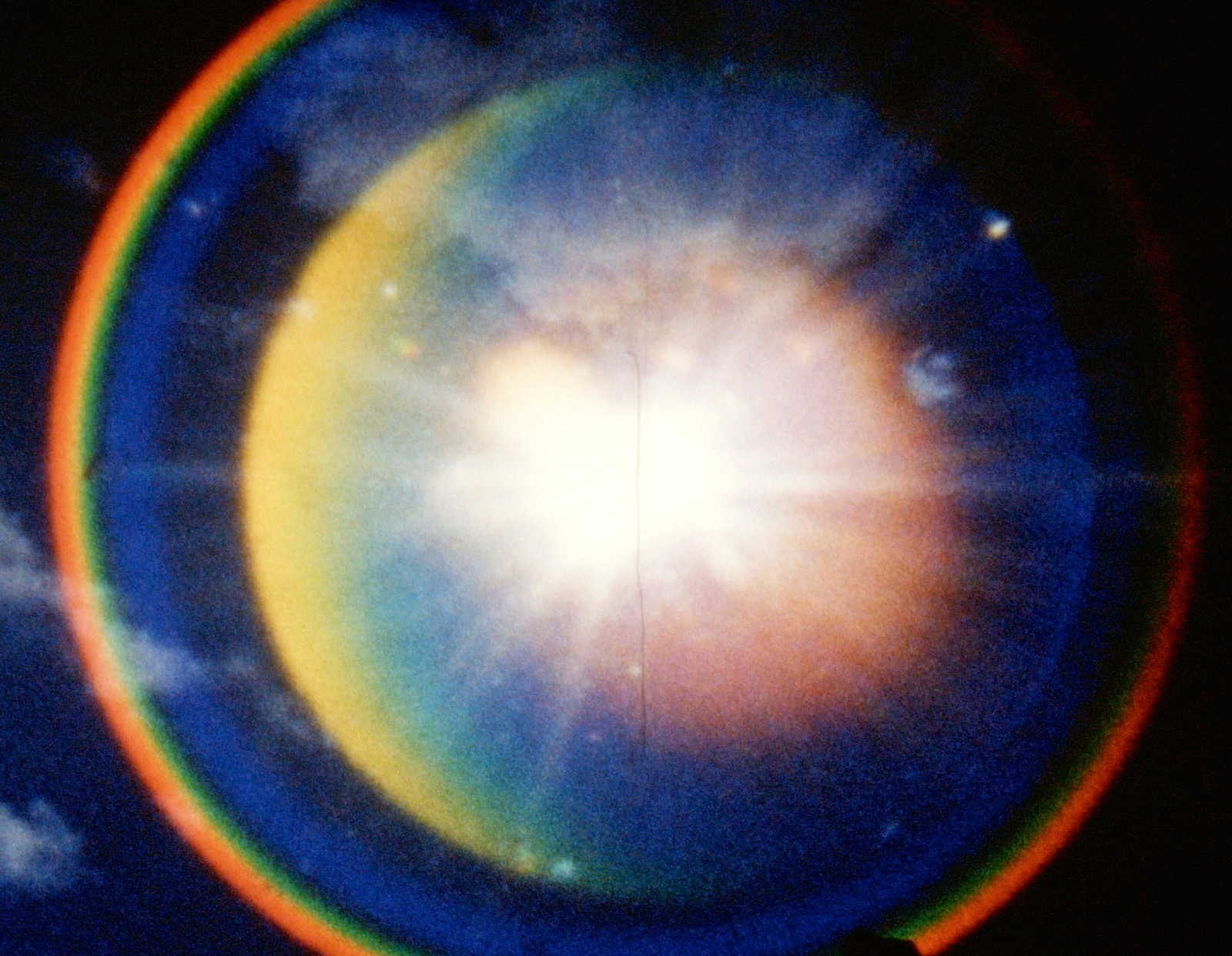
Basma Alsharif, Deep Sleep, 2014, film still from single-channel video, 12’45’’. Courtesy the artist.
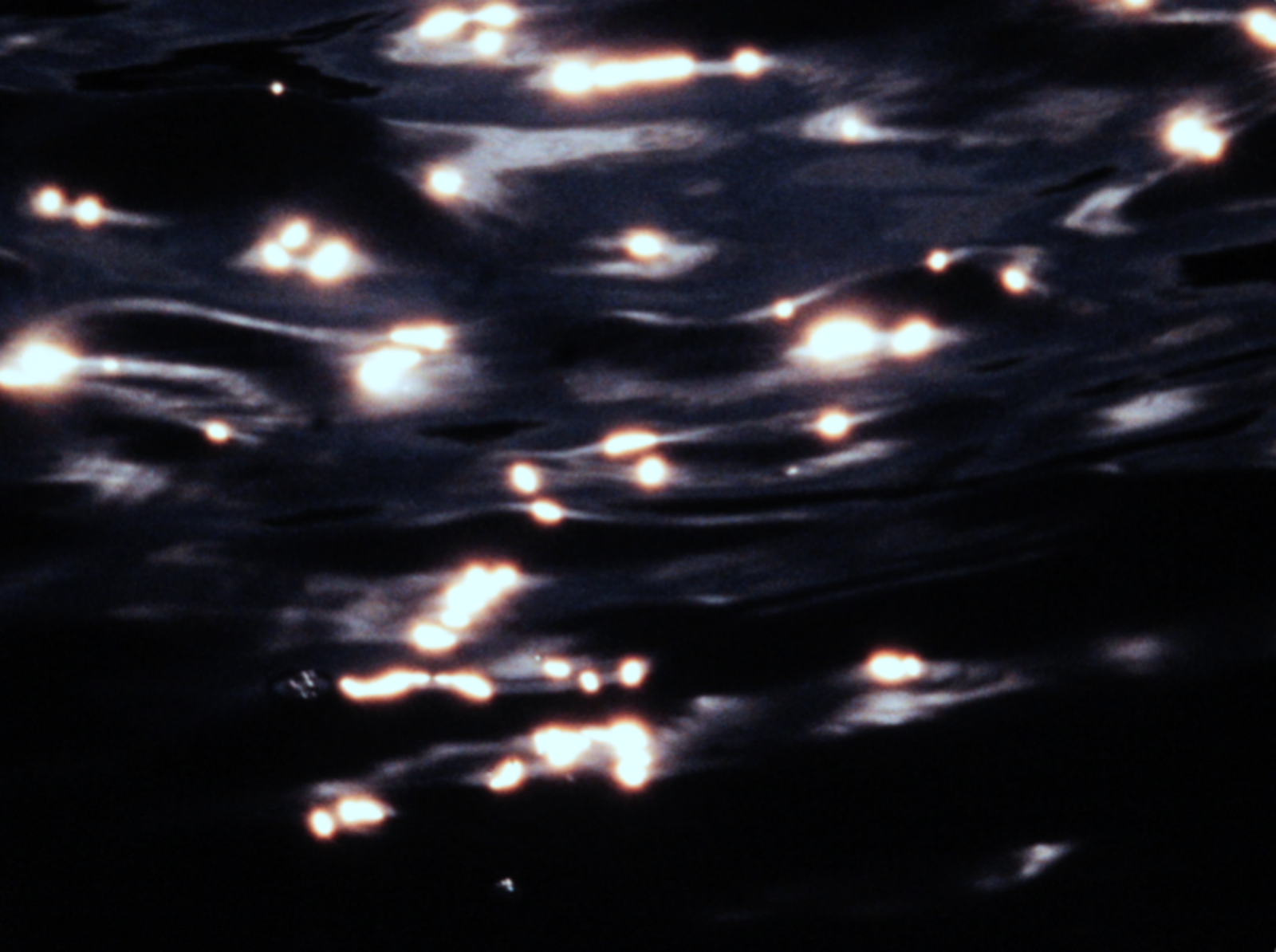
Nazlı Dinçel, Between Relating and Use, 2018, film still from single-channel video, 9’17’’. Courtesy the artist.
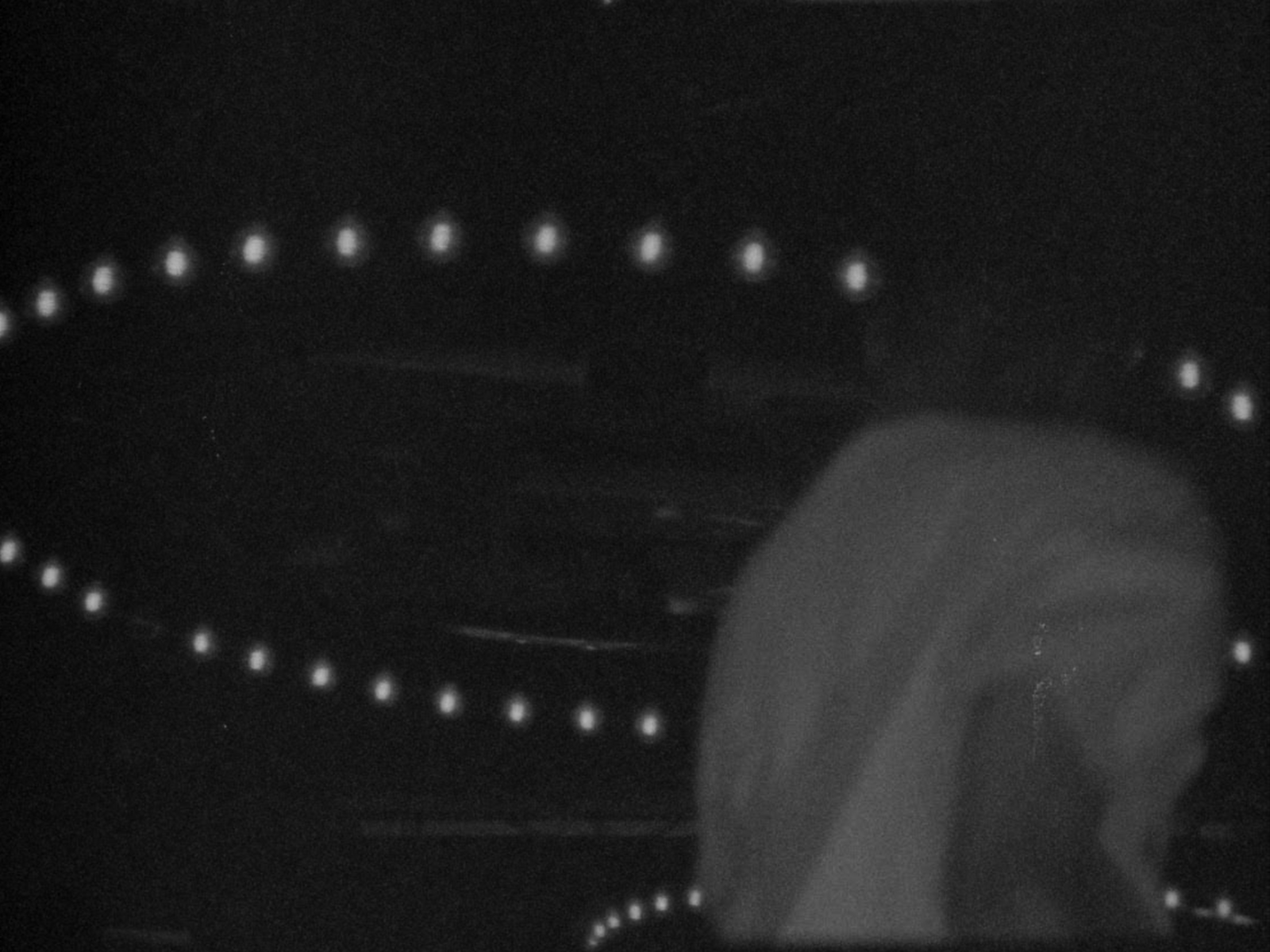
Peng Zuqiang, Slight Leak, 2022, film still from single-channel video, 12’15’’. Courtesy the artist.
Peng Zuqiang works with film, video and installations. Exhibitions and screenings include Cell Project Space, E-Flux screening room, Times Museum, UCCA Beijing, 25FPS, IDFA, Antimatter, and Open City Doc Festival. He has received fellowships and residencies from IAS CEU, MacDowell, Skowhegan, and the Core Program. He is the recipient of the Present Future Prize 2022, and a ‘Special Mention’ from Festival Film Dokumenter, Yogyakarta for his first feature film, Nan (2020). A resident artist at Rijksakademie van beeldende kunsten, he lives and works in Amsterdam.
Working nomadically between the Middle East, Europe, and North America, Basma al-Sharif — an artist and filmmaker of Palestinian heritage — explores cyclical political histories. In films and installations that move backward and forward in history, between place and non-place, she confronts the legacy of colonialism and the experience of displacement with satire, doubt, and hope.
With a focus on dance and through a varied and often collaborative body of work comprising performance, installation, sound and video, Paul Maheke (France/UK) considers the potential of the body as an archive in order to examine how memory and identity is formed and constituted. Maheke’s practice is based on simple gestures that once consisted of placing works in public space. It has now expanded to video, sound, installation and performance.
Nazlı Dinçel is a non-binary trans filmmaker and a first-generation immigrant born in Ankara, Turkey. They studied at the University of Wisconsin-Milwaukee. Their films have screened at museums, festivals, and micro-cinemas around the world, including the MoMA and MoMI (NY), IFF Rotterdam, MuMok (Vienna), BAFICI (Buenos Aires), Hong Kong IFF, etc. Dinçel’s hand-made work reflects on experiences of disruption. They record the body in context with arousal, immigration, dislocation, and desire with the film object: its texture, color, and the tractable emulsion of the 16mm material. Their use of text as image, language, and sound imitates the failure of memory and their own displacement within a western society.
P. Staff (b. 1987, UK; lives and works Los Angeles, USA and London, UK) is an artist and poet. Recent exhibitions include The Milk of Dreams, Venice Biennale (2022); Recent Poems, yaby, Madrid (2021); HEVN, LUX, London (2021); Bodies of Water: 13th Shanghai Biennale, Shanghai (2021); Stressed Herms Sweat and Period Gas, ICA Shanghai (2020); On Venus, Serpentine Galleries, London (2019); The Foundation, LUMA Westbau, Zurich; Dundee Contemporary Arts, Dundee (2019); The Body Electric, Yerba Buena Center for the Arts, San Francisco (2019); i, i, i, i, i, i, i Kathy Acker, Institute of Contemporary Arts, London (2019) etc.